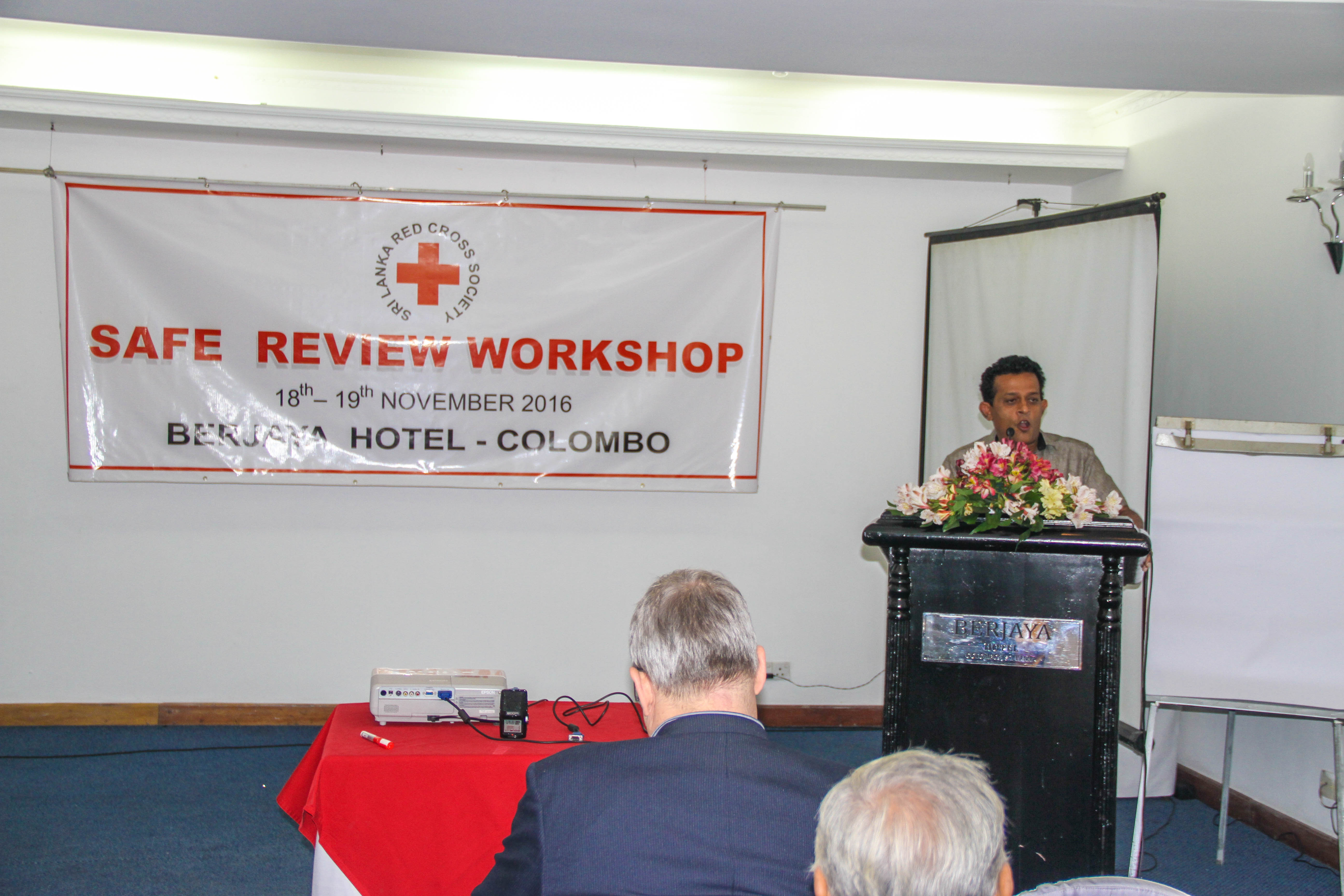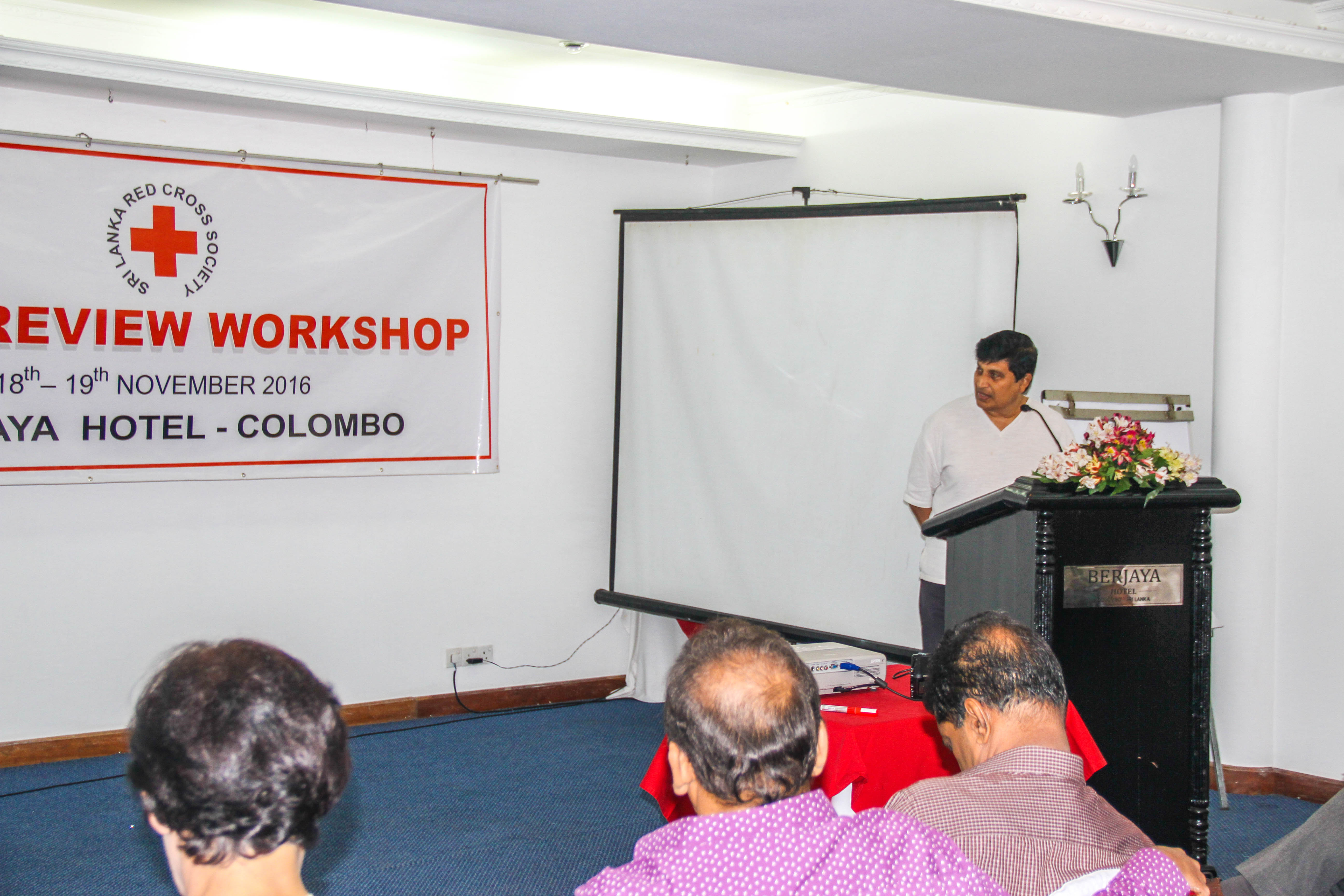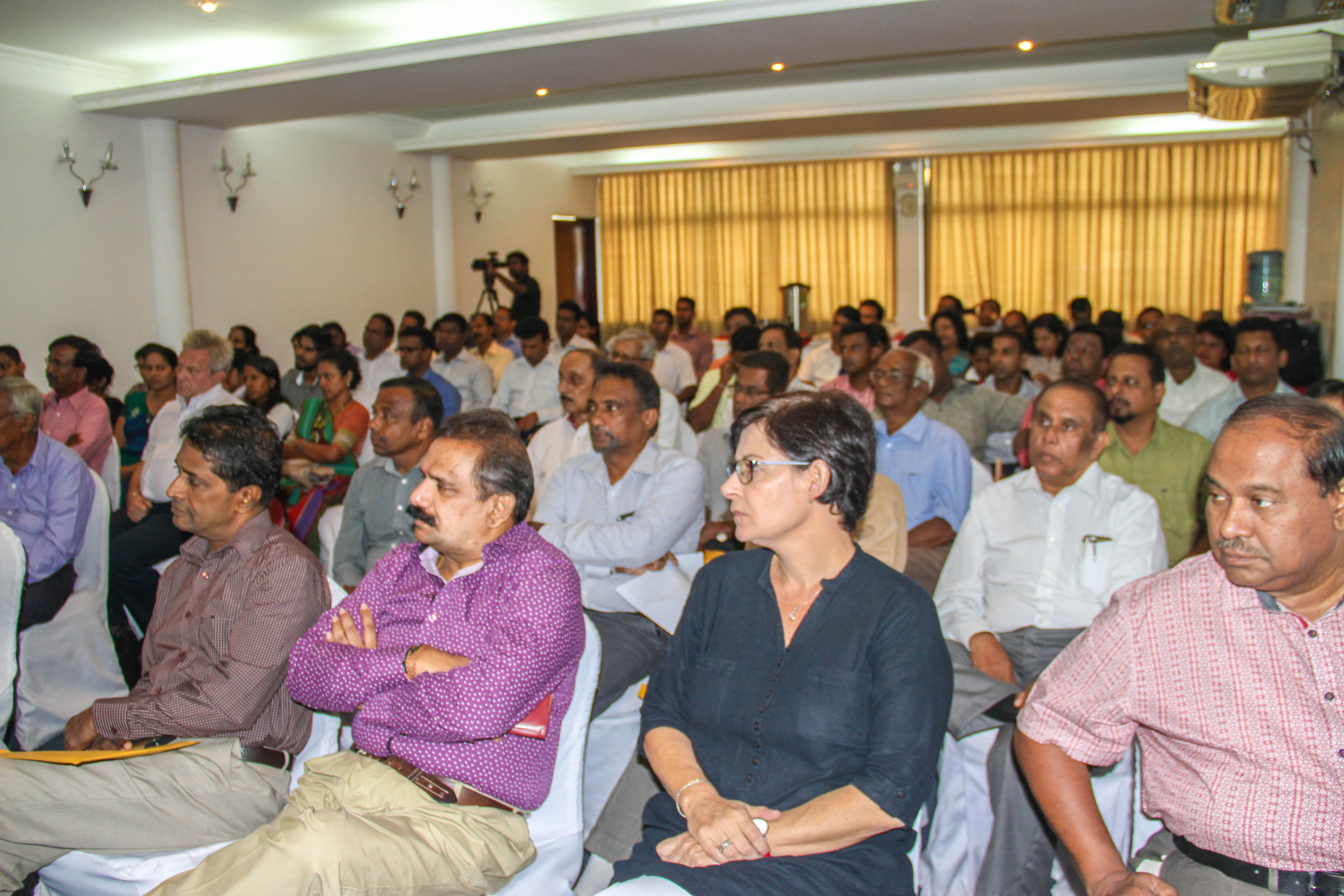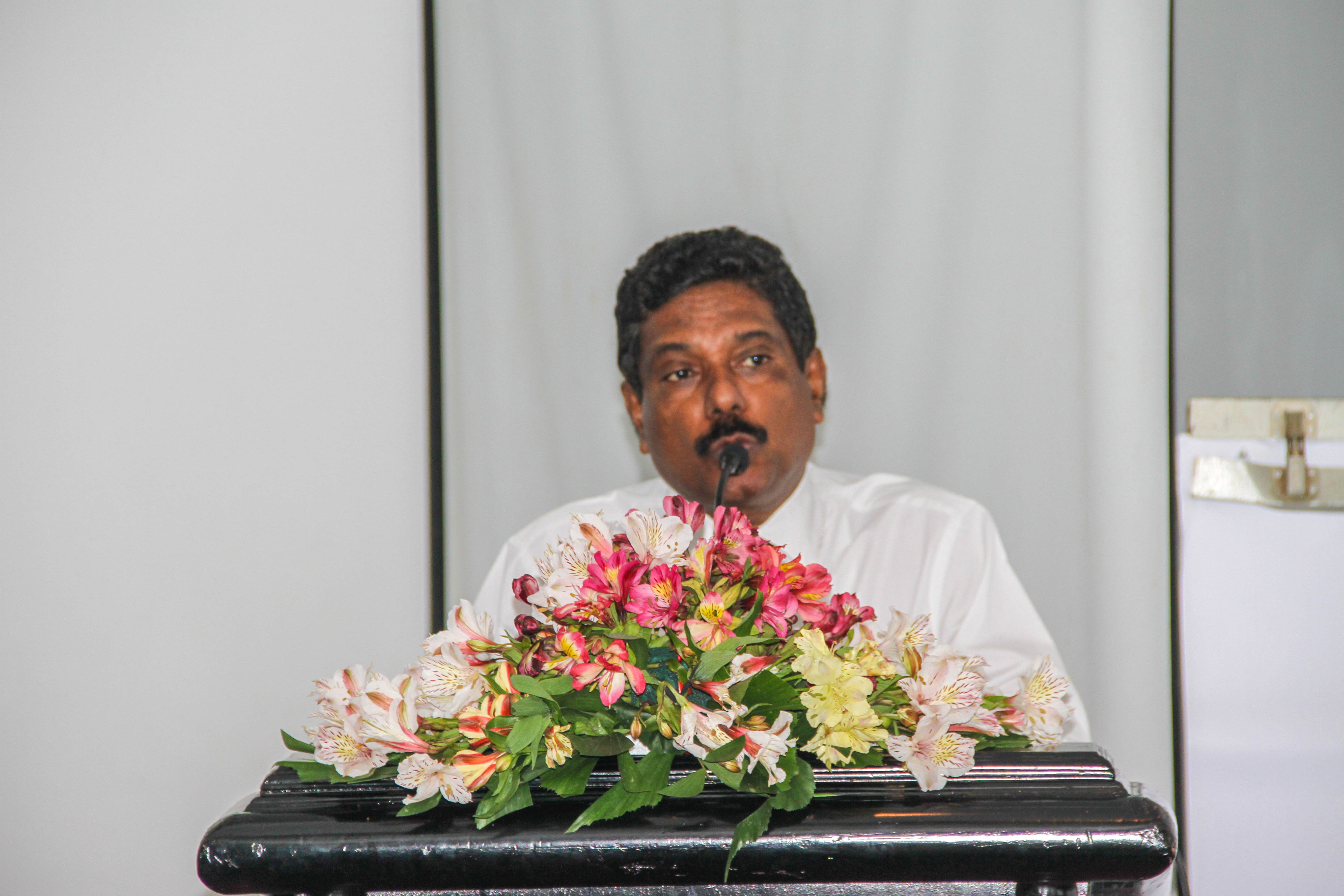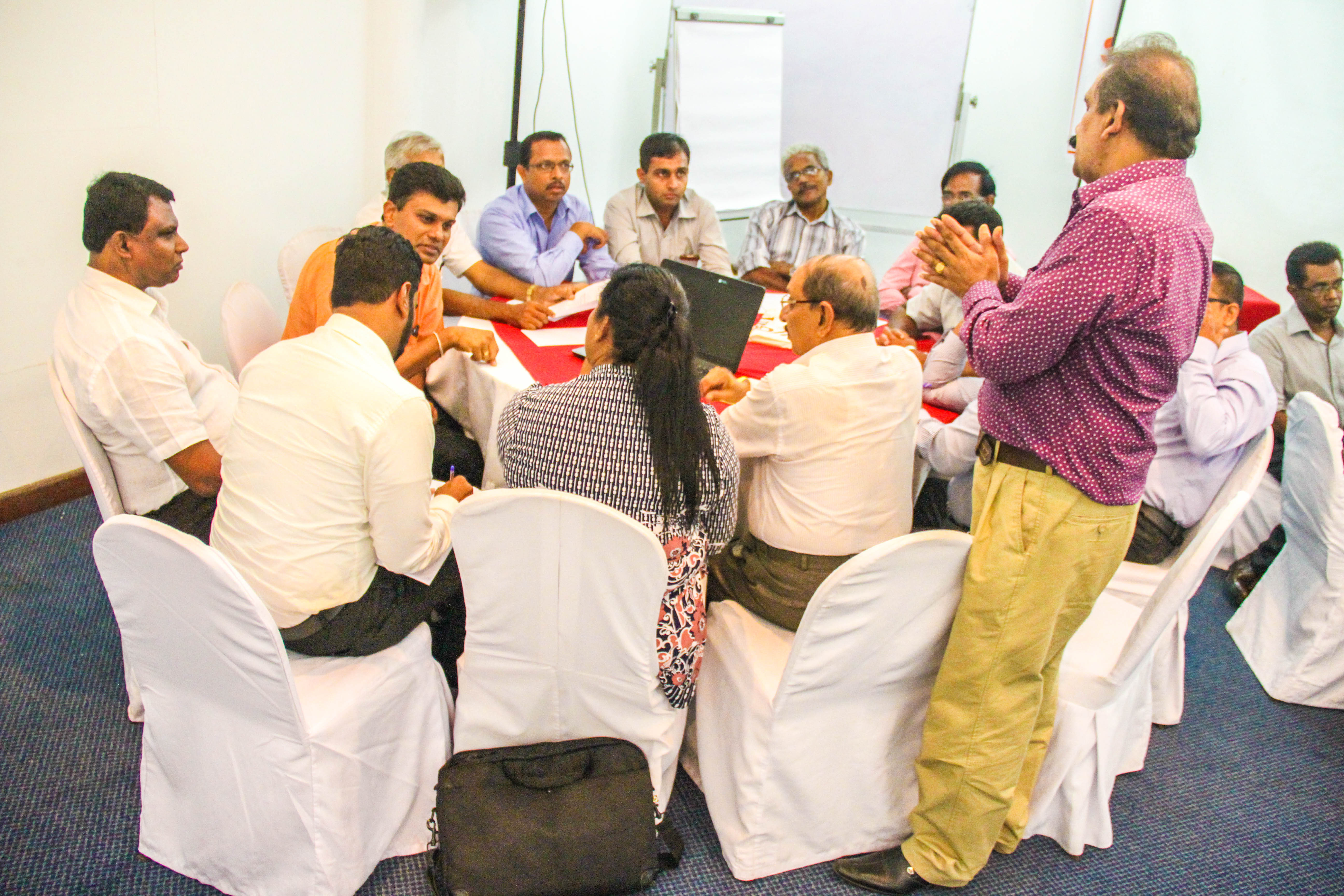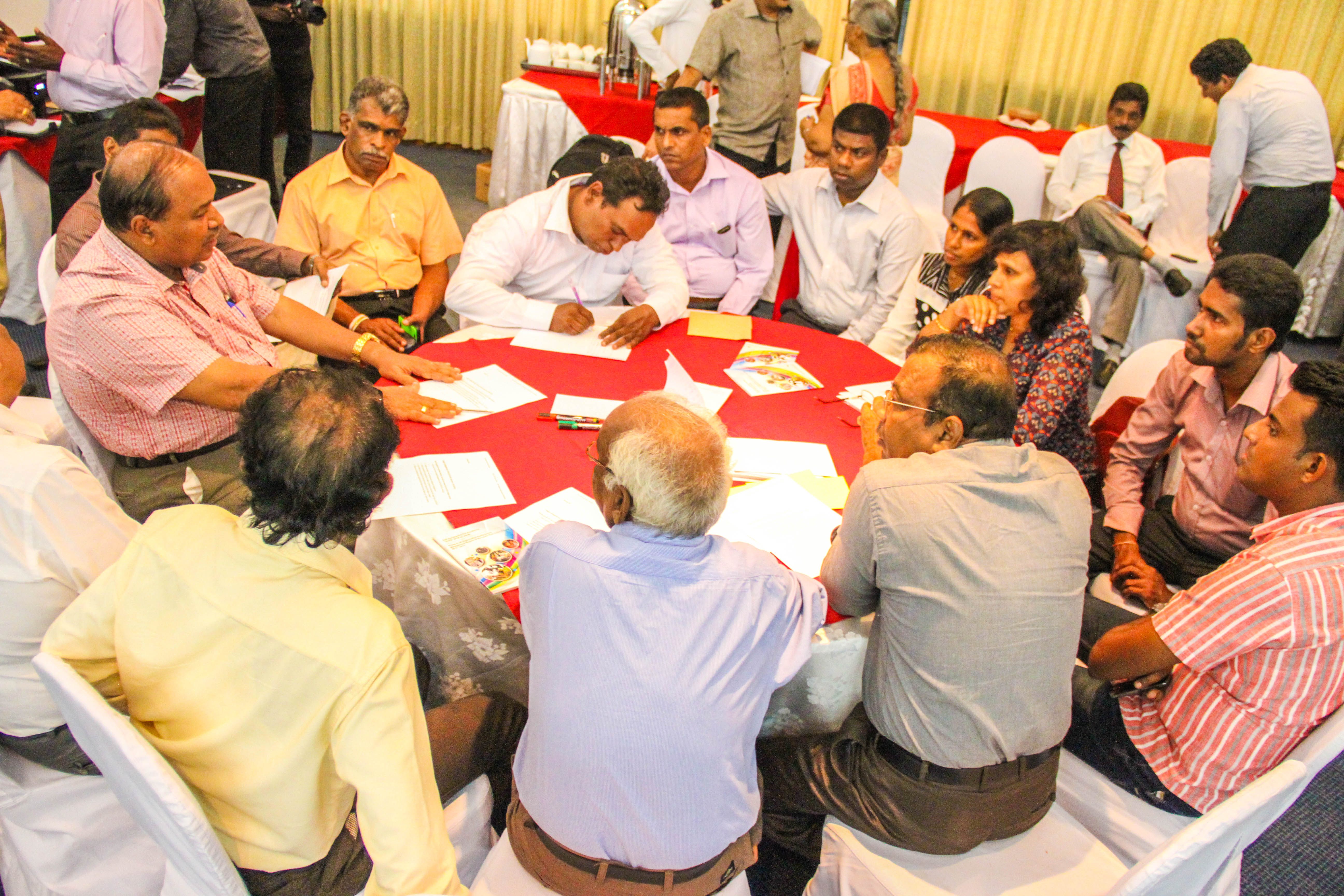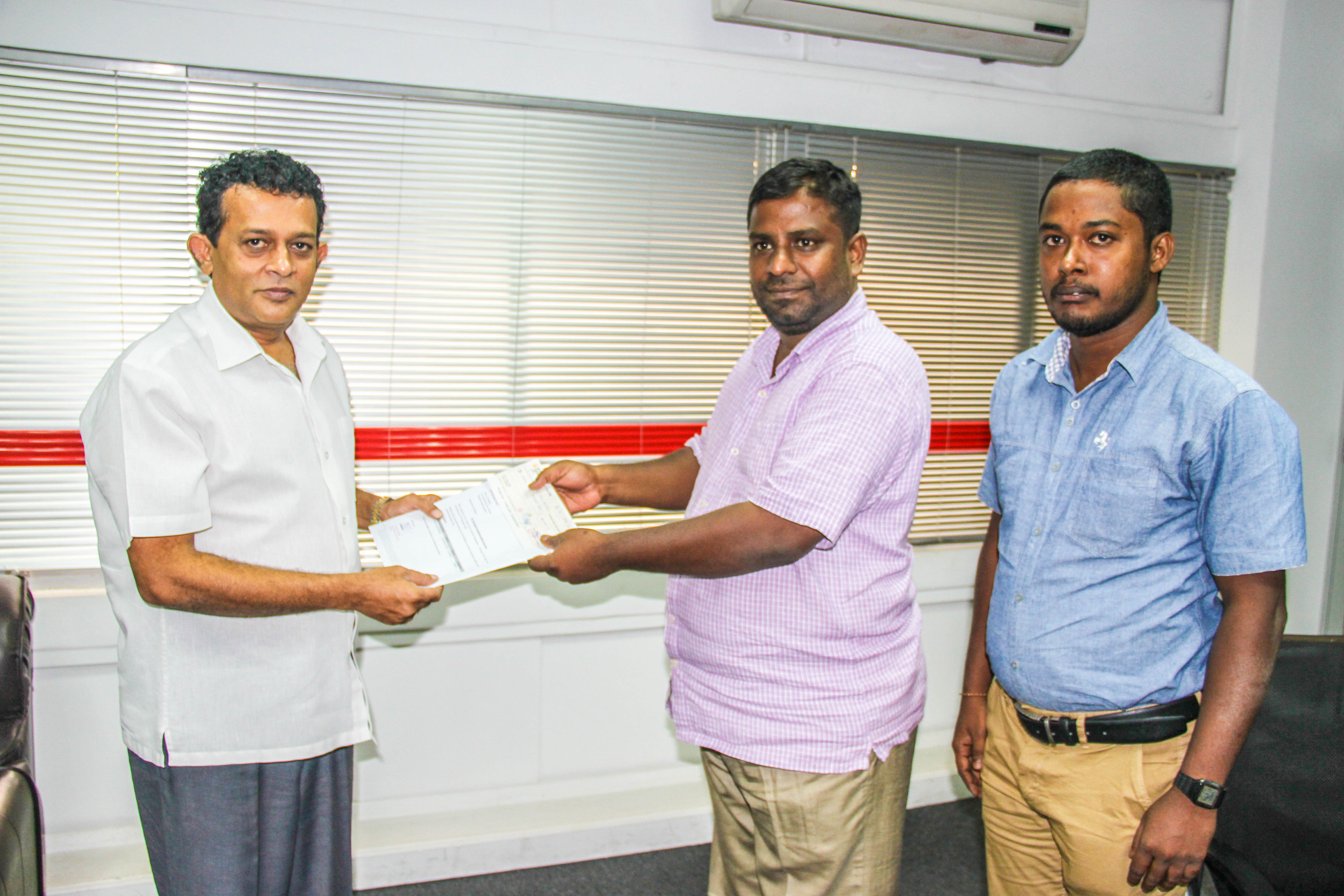Taking the next steps towards humanitarian excellence
28/11/2016 – Colombo, Sri Lanka: Last week members of the Sri Lanka Red Cross, from Governance to Branch Officers took part in an exercise to determine the next course of action in humanitarian programming for Sri Lanka Red Cross in the next decade. The programme titled “Self Assessment for Excellence” (SAFE) looked at how the entities of the Red Cross, from the National Headquarters to the Branch level can launch programming aimed at their communities that would have a better impact through self funded mechanism. Members from the International Federation of Red Cross & Red Crescent Societies (IFRC) and the ICRC took part as well.
With Sri Lanka being listed as a middle income country, foreign aid to Sri Lanka has now been cut more than 75% from the amounts funded in 2009. Despite the workload remains the same or has increased in aiding vulnerable communities, now aid organizations such as the Red Cross is forced towards raising the same amount of funding through national resources.
Accordingly this exercise that began under the vision of President of SLRCS Jagath Abeysinghe is aimed at ensuring that branch level becomes self sustainable in funding and in progamming to ensure that they are capable of meeting humanitarian needs within their communities. This include in tapping into local funding opportunities and getting the community more involved in the society, rather than making them to be beneficiaries of programmes.
The first phase of this programme that began in 2009, soon after the war ended, forecasting a change in economy and aid, the President of SLRCS launched the SLRCS Re-Engineering Programme than ran until the end of 2010. The main aim of this exercise was to ensure that the massive staff and governance structures of SLRCS that was accumulated due to the tsunami programming, was brought down to levels that the National Society can handle and maintain without hampering the ability to deliver quality programming.
Meanwhile the 2nd phase of the Re-Enginnering programme was launched in latter 2010 now aimed at ensuring that the branch tier of the administration level of SLRCS becomes independent, mainly financially from the National Headquarters, thus pushing them towards looking at local funding and projects that would harness the ability to function independently.
Soon afterwards this programme that concluded, a rapid 180 day programme was launched providing targets to the branches and other administration tiers and providing them with a scoring system that would allow them to self assess the quality of their programming and how they can fine tune their errors in order to fit better to the overall objectives of the society.
With the end of the 180 day programme, the SLRCS Leadership launched the “Way Forward Beyond Reengineering” Programme that aimed at a continued provision of self governance by the branches and providing them a clear assessment of the progress they make through this programme.
Last week the next phase of this continuing objective of ensuring a better National Society adopting to the changing landscape took another step with the Self Assessment for Excellence Programme. The main objective of this programme is to ensure that the branches and the NHQ continues to function successfully despite the changes in the landscape of funding and economy.
One of the key areas of focus was to ensuring that the branch now takes the role of providing funding support to the National Headquarters through their local programming and income generation projects. The first contribution of such from a branch to the National Headquarters took place days after this workshop where the Chairman of the Mannar Branch J. J. Kennedy handed over the cheque with their contribution to the NHQ to the President of SLRCS.
Sri Lanka Red Cross under the guidance of the President, continues to find new and innovative ways to address issues that has been forced upon them, be it economically or the change in political or social landscapes.
